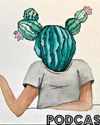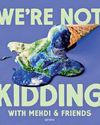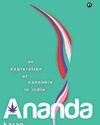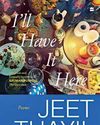Our first three years are a blur and we don’t recall much before the age of seven. It turns out those early memories aren’t merely tucked away.

I’M THE YOUNGEST by far of five children. By the time I started first grade, my siblings were gone and we went from a very noisy household to a very quiet one.
My family has told me stories about those early years before my siblings left. How my brother ambushed me around corners with a toy crocodile. How my oldest sister carried me like a kangaroo with her joey. But I can offer very few stories of my own from that time.
Hardly any adult can. There is a term for this —infantile amnesia, coined by Sigmund Freud to describe the lack of recall adults have of their first three or four years and their paucity of solid memories until around age seven. There has been a century of research about whether memories of these early years are tucked away in some part of our brains and need only a cue to be recovered. But research now suggests that the memories we form in these early years simply disappear.
Psychologist Carole Peterson of Memorial University of Newfoundland, Canada, has conducted a series of studies to pinpoint the age at which these memories vanish. First, she and her colleagues assembled a group of children between the ages of four and 13 to describe their earliest recollections. The children’s parents stood by to verify the memories and even the youngest kids could recall events from when they were around two years old.
The children were interviewed again two years later. Nearly 90 per cent of the memories initially offered by those 10 and older were retained. But the younger children had gone blank. “Even when we prompted them about their earlier memories, they said, ‘No, that never happened to me,’” Peterson said. “We were watching childhood amnesia in action.”
Esta historia es de la edición May 2017 de Reader's Digest India.
Comience su prueba gratuita de Magzter GOLD de 7 días para acceder a miles de historias premium seleccionadas y a más de 9,000 revistas y periódicos.
Ya eres suscriptor ? Conectar
Esta historia es de la edición May 2017 de Reader's Digest India.
Comience su prueba gratuita de Magzter GOLD de 7 días para acceder a miles de historias premium seleccionadas y a más de 9,000 revistas y periódicos.
Ya eres suscriptor? Conectar

ME & MY SHELF
Siddharth Kapila is a lawyer turned writer whose writing has focussed on issues surrounding Hinduism. His debut book, Tripping Down the Ganga: A Son's Exploration of Faith (Speaking Tiger) traces his seven-year-long journey along India's holiest river and his explorations into the nature of faith among believers and skeptics alike.

EMBEDDED FROM NPR
For all its flaws and shortcomings, some of which have come under the spotlight in recent years, NPR makes some of the best hardcore journalistic podcasts ever.

ANURAG MINUS VERMA PODCAST
Interview podcasts live and die not just on the strengths of the interviewer but also the range of participating guests.

WE'RE NOT KIDDING WITH MEHDI & FRIENDS
Since his exit from MSNBC, star anchor and journalist Mehdi Hasan has gone on to found Zeteo, an all-new media startup focussing on both news and analysis.

Ananda: An Exploration of Cannabis in India by Karan Madhok (Aleph)
Karan Madhok's Ananda is a lively, three-dimensional exploration of India's past and present relationship with cannabis.

I'll Have it Here: Poems by Jeet Thayil, (Fourth Estate)
For over three decades now, Jeet Thayil has been one of India's pre-eminent Englishlanguage poets.

Orbital by Samantha Harvey (Penguin Random House India)
Samantha Harvey became the latest winner of the Booker Prize last month for Orbital, a short, sharp shock of a novel about a group of astronauts aboard the International Space Station for a long-term mission.

She Defied All the Odds
When doctors told the McCoombes that spina bifida would severely limit their daughter's life, they refused to listen. So did the little girl

DO YOU DARE?
Two Danish businesswomen want us to start eating insects. It's good for the environment, but can consumers get over the yuck factor?

Searching for Santa Claus
Santa lives at the North Pole, right? Don't say that to the people of Rovaniemi in northern Finland